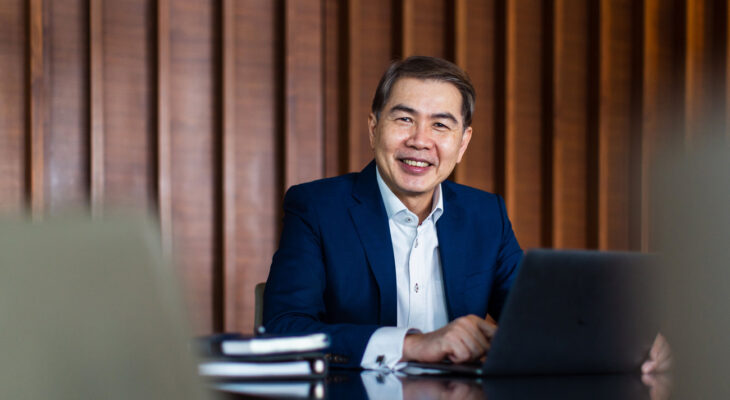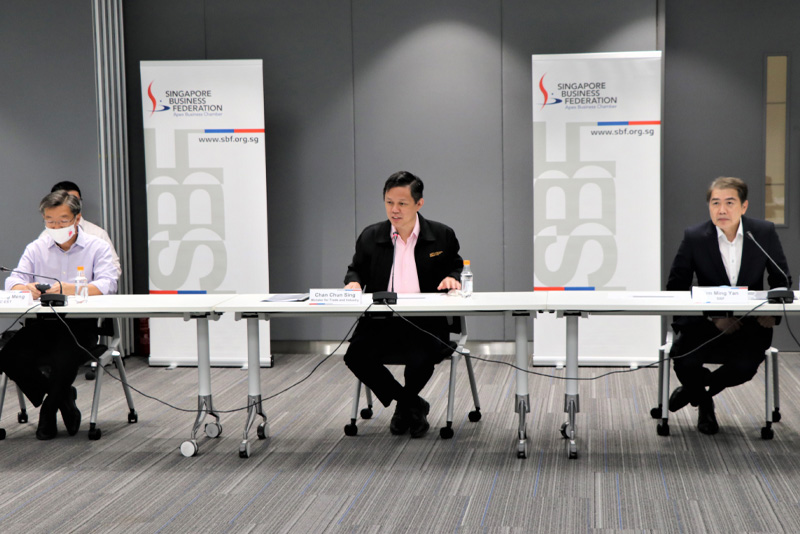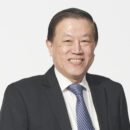
SBF Chairman: Mr Lim Ming Yan
Lim Ming Yan, the newly elected SBF Chairman, leads the way to help businesses recover and grow amid challenging times
Taking forth the legacy and drive with equal force, Mr Lim Ming Yan, the newly elected Chairman of the Singapore Business Federation (SBF), is firmly leading the way for businesses to transform and emerge stronger in the new economy.
Having taken over from industry stalwart and Managing Director of Pacific International Lines, Mr S.S. Teo, the experience and expertise of Mr Lim are exemplary. The former CapitaLand CEO brings with him a wealth of knowledge and experience in not only the real estate industry, but also a good understanding of the global markets as well.
Mr Lim is concurrently the Chairman of Workforce Singapore and sits on the boards of Singapore Press Holdings, Central China Real Estate Limited, and DLF Cyber City Developers Limited. He is also a member of Singapore’s Future Economy Council (FEC).
BiZQ talks to Mr Lim Ming Yan on his vision and mission as an enabler and catalyst to industrial growth, and about going global to forge a new path ahead.
How will SBF help the business community transform through digitalisation?
We have seen how the COVID-19 pandemic has reshaped the global economy, and how the Emerging Stronger Taskforce (EST), set up under the auspices of the Future Economy Council (FEC), is helping to oversee the long-term response to the structural shifts in our economy and businesses.
Drawing on my decades-long experience in the real estate industry, myself, together with our Infrastructure Committee, are leading the Digitalising Built Environment, under the Alliances for Action, to accelerate the digitalisation push to raise productivity across the entire built environment value chain.
Similarly, our Digitalisation Committee has been consistently engaging industry stakeholders, financial institutions and solution providers to organise forums to help businesses better understand and optimise the use of Industry Transformation Maps (ITMs) and Industry Digital Plans (IDPs). There are further plans to develop greater synergies between the various initiatives of the FEC and our programmes too.
How can businesses and workers work in tandem to address challenges?
As the Chairman of Workforce Singapore, the development and inclusivity of workers across all levels of the workforce remain key concerns for me. A united, competitive, and resilient workforce with a forward-looking perspective to acquire new skills and job-related capabilities will bode well for our businesses in their growth plans.
As the apex business chamber, we will work together with the stakeholders, including the Singapore National Employers Federation and our tripartite partners, to play an active role in driving the jobs and skills agenda.
I hope that companies will be able to tap Government initiatives such as the Jobs Support Scheme and Jobs Growth Incentive as a runway to plan and sustain their manpower needs in the longer term, as well as to preserve and create jobs during the current downturn.
Of more immediate concern to me would be the mid-career individuals, mature workers, and low-wage workers, many of whom are essential workers keeping the economy going. These workers with deep pockets of experience are valuable to their companies and I would like to see greater support for such workers.
As the central coordinator for the SGUnited Jobs Initiative, we are also working closely with other trade associations and chambers (TACs) to drive cross-TACs or cross-sectoral job matching to ensure that workers remain gainfully employed by meeting the business needs of companies.
Why should businesses look beyond local shores and how is SBF helping such businesses?
We all know that supply chain resilience and diversification of markets remain critical amidst protectionist mindsets and growing trade tensions among countries. Singapore is a small and open economy that is heavily trade-reliant, and internationalisation is a key driver of growth for many of our businesses. Our education and outreach initiatives for such businesses to take advantage of Singapore’s position as a trading hub will help recalibrate their internationalisation strategy and provide them with opportunities in new markets.
We have launched GlobalConnect@SBF in November 2019, with the support from Enterprise Singapore, to help businesses expand and deepen into overseas markets. To date, GlobalConnect@SBF has connected with over 2,000 Singapore businesses and provided advisory services to at least 340.
We have also just set up two new ASEAN overseas offices, in Jakarta and Ho Chi Minh City. They will be fully operational after December 2020 to provide better in-market support to Singapore businesses. Thus, one of our current focus is pushing to reopen borders for business travels, because we understand that businesses need the safe and timely resumption of travel to finalise deals and retain control over overseas operations.

How has SBF continue to engage members and address their challenges?
The pandemic has adversely affected economic and business activities. With the situation remaining uncertain, and with the resurgence of the virus in many parts of the world, businesses face an uneven path towards recovery. SBF has been working closely with our businesses since, to better understand their concerns and explore ways to help them overcome these issues.
For example, the circuit breaker period in which all non-essential workplaces and shops were closed to combat the spread of COVID-19 brought imbalances to the fore in the relationship between institutional landlords and F&B, retail and lifestyle tenants. The Fair Tenancy Pro Tem Committee set up in June this year under the auspices of SBF, aims to strengthen collaboration and increase the vibrancy and competitiveness of these sectors.
We have also held multiple dialogues with various Government ministries, representatives from Trade Associations and Chambers, and business leaders to exchange views on how businesses can address challenges and the support they require to forge a new path forward.
Even as the present downturn is expected to be protracted, with businesses facing pressing challenges on multiple fronts, we will continue to engage them so they can take swift and decisive actions to build up resilience and create a strong workforce.
I will continue to leverage the good work by the past Chairman and work closely with fellow Council members and the SBF Secretariat to deliver fresh perspectives and programmes for businesses. We will also continue to partner the Government, trade associations and chambers, and businesses to address hot-button issues and promote the growth and vibrancy of the business community in Singapore.
On a personal note, what are some of your hobbies and goals?
I enjoy trekking and the outdoors. I have been fortunate to have gone mountain climbing and trekking in Nepal, Europe and South America at the end of 2018 and the whole year of 2019. Some of the more unique places that I have visited included Lobuche Summit, Patagonia at the end of the world, Atacama Desert of Chile, the Gobi Desert, Mount Elbrus, as well as the largest known cave system in the world – the Son Doong Caves.
The past two years also provided me quality time to spend with my family, kin and friends. At the end of the day, a meaningful and well-directed life is one built upon the love and empathy of this close-knit circle of people. This may be defined differently by each of us, but what is clear is that it cannot be just work, and nothing outside of work. I would strongly encourage everyone to maintain their own work-life balance.


















